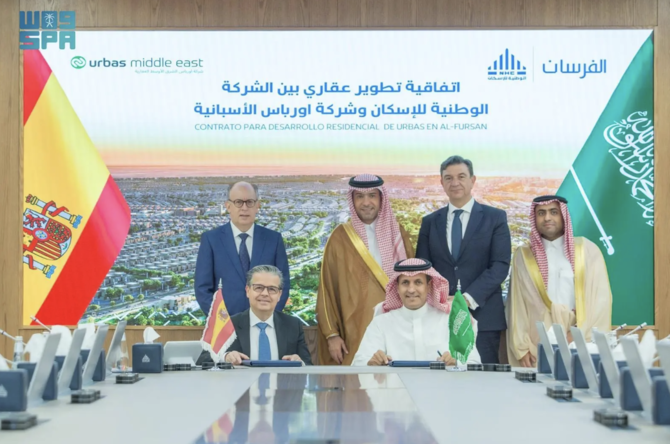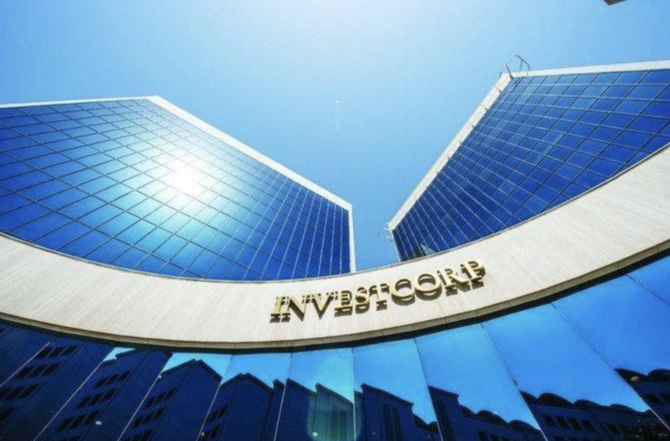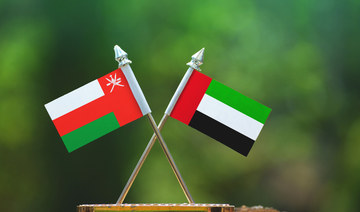SAN FRANCISCO, California: Ever-expanding Google becomes a gaming company Tuesday with the launch of its Stadia cloud service that lets people play console-quality video games on a web browser or smartphone.
The Internet giant hopes to break into the global video game industry expected to top $150 billion this year, with cloud technology that could broaden audiences attracted by rich new features as well as ease of access with no more need for consoles.
But analysts say Stadia’s outlook is uncertain as its faces rivals such as PlayStation Now in an emerging and highly-competitive market.
Stadia plays into a trend in which content — ranging from blockbuster films to work projects — lives in the cloud and is accessible from any device.
“All of these new services are merely pointing out that we don’t need sophisticated hardware in the home to access entertainment,” said Wedbush Securities equity research managing director Michael Pachter.
Google last month sold out of “Founder’s Edition” kits, which are priced at $129.
Each kit contains a Stadia controller and a pendant-shaped Chromecast Ultra wireless connection device that plugs into television sets.
Stadia games are playable using Google Chrome web browser software on computers.
It also works with Google-made Pixel smartphones from the second-generation onward, and on televisions.
Stadia Pro subscriptions, priced at $10 a month in the US, will be available in 14 countries in North America and Europe.
'Underwhelming'
However, analysts say Stadia could wind up as another “bet” that Google walks away from if it fails to live up to expectations.
“Stadia will live or die by its content,” said Ovum senior analyst George Jijiashvili.
“The announced 12 launch titles are underwhelming.”
Subscribers will be able to buy games that will be hosted at Google data-centers, but some free games will be available to subscribers, starting with “Destiny 2: The Collection.”
Stadia on smartphones will work with WiFi connections rather than rely on mobile telecom services.
Being able to play without lags or interruptions is paramount to gamers, and flawed Internet connections could cause frustration. Internet speed will also determine how rich in-game graphics can be.
Some promised features such as integration with YouTube will not be in place at launch.
“Stadia appears to be rushed out the door before fully ready and, worryingly, Google is risking falling short on its promises,” Jijiashvili said.
“These shortcomings however would be easily overlooked if Google can deliver a very reliable and high-quality game streaming service.”
Google appears committed to doing just that, according to Ubisoft senior vice president of partnerships Chris Early.
The French video game giant has been working with Google and its games are among titles coming to the service.
“From what I have seen, their plans are too deep; they are too good, and they are too invested,” Early said. “They are not calling it quits any time soon.”
He expects a long launch period during which Google will beef up Stadia.
“If there is a one-day problem at launch, it isn’t the end of the world; it isn’t even close,” he said, stressing the potential for Stadia to let people play without investing in consoles.
But Pachter questioned whether subscriptions were the right approach.
“The right model is pay as you go or pay for the game and play unlimited without a subscription,” Pachter said.
“Amazon will try one of those and will win the streaming wars.”
Amazon has game studios but no online game service.
Project xCloud
US technology veteran Microsoft has been testing a Project xCloud online game platform.
“Next year, we’ll bring Project xCloud to Windows PCs, and are collaborating with a broad set of partners to make game streaming available on other devices as well,” Microsoft corporate vice president Kareem Choudhry said in an online post.
Sony Interactive Entertainment last month slashed the price of its PlayStation Now cloud video game service by about half in the US to $10 monthly.
Japan-based Sony also boosted the library of games that PlayStation Now users can access through its consoles or on personal computers powered by Windows software.
Sony and Microsoft are also poised to release new-generation video game consoles next year.
“While we expect dedicated consoles to eventually lose relevance in the face of cloud gaming services, there’s no guarantee that it will be Google’s service — rather than Sony and Microsoft’s — that catalyzes this trend,” said Ovum senior analyst Matthew Bailey.
Google enters battle for cloud gaming market
Google enters battle for cloud gaming market

Omani officials forge economic alliances with Saudi Arabia, Japan, and US

RIYADH: Oman’s industrial infrastructure is set to receive a boost following a new agreement with Saudi Arabia, fostering private sector participation in the country’s economic growth.
A memorandum of understanding, aimed at financing the infrastructure of several industrial zones in Oman, was signed during a meeting between Minister of Finance Sultan bin Salem Al-Habsi and Sultan Abdulrahman Al-Marshad, CEO of the Saudi Fund for Development, the Oman News Agency reported.
Discussions centered on cooperation mechanisms between Oman and the fund, along with updates on collaborative development projects.
The aim is to develop the industrial and logistical sectors by providing all necessary basic services, thereby encouraging the private sector to contribute to Oman’s economic development in line with Oman Vision 2040, as reported by the agency.
This memorandum falls within the framework of cooperation between the two parties to support developmental areas in Oman. These encompass infrastructure, higher and vocational education programs, and water, along with the industry and mining sectors. Additionally, it includes transportation and communications sectors, as well as developmental projects in the energy sector.
On another note, Ali bin Masoud Al-Sunaidi, chairman of the Public Authority for Special Economic Zones and Free Zones, met with Ken Saito, minister of economy, trade and industry of Japan, and his accompanying delegation in Tokyo.
During the meeting, they reviewed the business cooperation between the two countries and the major projects under construction in the economic and free zones and industrial cities in Oman, notably the low-carbon iron production project in the Special Economic Zone in Duqm.
The visit also included meetings with officials from companies engaged in iron and its derivatives production, and renewable energy equipment manufacturing companies, as well as a visit to Yokohama Port to learn about its experience in receiving ships specialized in energy and petroleum product transportation.
Also on April 24, Oman and the US explored ways to enhance trade, investment, and address challenges comprehensively during the second strategic dialogue held in Washington.
The Omani side was chaired by Sheikh Khalifa bin Ali bin Issa al-Harthy, undersecretary for Diplomatic Affairs, Ministry of Foreign Affairs, while the US side was chaired by Jose Fernandez, undersecretary of state for Economic Growth, Energy, and the Environment.
Both sides discussed opportunities for American companies in Oman, focusing on ICT, semiconductors, and clean energy services, expressing commitment to enhancing cooperation in clean energy solutions and mineral investments.
They addressed environmental priorities under the Omani-American cooperation memorandum, fostering communication between researchers from both countries for clean energy research.
Saudi NHC, Spain’s Urbas to construct almost 600 housing units in Al-Fursan suburb

RIYADH: Saudi Arabia’s Al-Fursan suburb will soon be home to 589 new residential units worth around SR1 billion ($266 million) thanks to a deal sealed by the National Housing Co.
Inked with Urbas Middle East Real Estate Co., a subsidiary of the Spanish Urbas Group, the agreement involves the development as well as construction of the housing units on an area spanning 150,000 sq. m, the Saudi Press Agency reported.
This collaboration marks a significant milestone in the development of the Al-Fursan suburb. It also promises to set new standards in property development.
“This agreement complements the efforts of the recent visit to Spain and continues to attract international investments with major companies to provide various housing products that fulfill and meet the desires of citizens,” Saudi Minister of Municipal and Rural Affairs and Housing Majid Al-Hogail said in a post on X.
“As an extension of our journey in attracting the best international experiences and expertise in the real estate development industry, I was pleased to meet the CEO of the Spanish company Urbas, which is planned to be one of the companies developing the Al-Fursan neighborhood project in Riyadh,” Al-Hogail added.
The minister also highlighted how this step will contribute to providing innovative housing options and facilitate the exchange of experiences between Saudi and international developers.
IMF surcharges on borrowings exacerbate global inequities: report

BENGALURU: Countries, mostly middle and lower-income, have been burdened by surcharges on top of interest payments on their borrowings from the International Monetary Fund, widening global inequities, according to a report by US think tanks.
WHY IT’S IMPORTANT
Indebted member countries paid about $6.4 billion in surcharges between 2020-2023, the report from Boston University’s Global Development Policy Center and Columbia University’s Initiative for Policy Dialogue released on Tuesday showed.
And the number of countries paying these surcharges has more than doubled in the last four years.
The IMF is expected to charge an estimated $9.8 billion in surcharges in the next five years, according to an earlier report by the Center for Economic and Policy Research.
Critics of the policy argue that surcharges do not hasten repayment and instead punish countries already struggling with liquidity constraints, increase the risk of debt distress and divert scarce resources that could be used to boost the struggling economies.
BY THE NUMBERS
Countries such as Ukraine, Egypt, Argentina, Barbados and Pakistan pay the most in surcharges, the report showed, accounting for 90 percent of the IMF’s surcharge revenues.
These surcharges, levied on top of the fund’s increasingly steeper basic rate, are IMF’s single largest source of revenue, accounting for 50 percent of total revenue in 2023.
KEY QUOTES
“IMF surcharges are inherently pro-cyclical as they increase debt service payments when a borrowing country is most need of emergency financing," Global Development Policy Center’s Director Kevin Gallagher said.
“Increasing surcharges and global shocks are compounding the economic pressure on vulnerable countries.”
CONTEXT
Data published by the Institute of International Finance earlier this year showed global debt levels hit a record of $313 trillion in 2023, while the debt-to-GDP ratio — a reading indicating a country’s ability to pay back debts — across emerging economies also scaled fresh peaks.
IMF shareholders agreed last week on the importance of addressing challenges faced by low-income countries, Managing Director Kristalina Georgieva said on Friday.
China’s wealth fund joins with Bahrain’s Investcorp for $1bn Middle East investment

RIYADH: China’s growing interest in the Middle East continues as the country’s sovereign wealth fund partnered with Bahrain’s Investcorp to establish a $1 billion investment pot.
According to a press statement, Investcorp Golden Horizon fund will assist companies across Saudi Arabia, the wider Gulf Cooperation Council region and China.
The reserve will be anchored by reputable institutional and private investors from the GCC, as well as China Investment Corp.
The press statement revealed that target companies are expected to have high growth potential in sectors including consumer, health care, logistics and business services.
“During the past couple of years, we have built several bilateral funds with leading financial institutions to facilitate industrial cooperation between China and major economies in the world,” said Bin Qi, executive vice president and chief information officer at CIC.
He added: “Currently, we are working closely with Investcorp to build a similar bilateral fund to strengthen financial and industrial ties between China and GCC countries.”
This commitment from CIC comes when the GCC’s appeal to institutional investors is gathering pace, thanks to its stable regulatory environment and pro-business policies, driven by economic diversification efforts in the region and strategic privatization mandates.
“This commitment by CIC, one of the world’s largest sovereign wealth funds, is a testament to Investcorp’s unparalleled franchise in the GCC and reinforces the trust placed in the firm’s global platform and teams. We are looking forward to building on this relationship and growing our partnership in the future,” said Mohammed Al-Ardhi, executive chairman of Investcorp.
Co-CEO of Investcorp Hazem Ben-Gacem said the launch of the new fund will facilitate cross-border cooperation and investments between the GCC and China.
Trade and economic relationships between the Middle East and China have always been strong.
In 2023, China’s exports to Saudi Arabia and the UAE amounted to $42.86 billion and $55.68 billion respectively.
On the other hand, the Asian giant’s imports from Saudi Arabia totaled $64.36 billion in 2023.
In November, Saudi Arabia’s central bank, also known as SAMA, and the People’s Bank of China signed a local currency swap agreement worth $6.93 billion.
SAMA, in a statement, said that the three-year agreement “has been established in the context of financial cooperation between the Saudi Central Bank and the People’s Bank of China.”
The Asian country’s central bank said that the agreement will help strengthen financial cooperation between Saudi Arabia and China, promote the use of local currencies, and strengthen trade and investments between nations.
Oil Updates – crude steady as market weighs US demand concerns, Middle East conflict risks

SINGAPORE: Oil prices steadied on Thursday after settling lower in the previous day, as signs of retreating fuel demand in the US, the world’s biggest oil user, contended with widening conflict risks in the key Middle East producing region, according to Reuters.
Brent crude futures inched up 18 cents, or 0.2 percent, to $88.20 a barrel at 9:30 a.m. Saudi time, while US West Texas Intermediate crude futures gained 13 cents, or 0.2 percent, to $82.94 a barrel.
Data from the US Energy Information Administration on Wednesday showed that gasoline stockpiles fell less than forecast while distillate stockpiles rose against expectations of a decline, reflecting signs of slowing demand.
The falling fuel demand is occurring amid signs of cooling US business activity in April and as stronger-than-expected inflation and employment data means the US Federal Reserve is more likely to delay expected interest rate cuts, weighing on economic sentiment.
“The current weakness in benchmark prices, after testing above $90 (a barrel) levels, is due to market sentiment refocusing on global economic headwinds over geopolitical tensions,” said Emril Jamil, senior oil analyst at LSEG Oil Research.
Geopolitics aside, prices this quarter will be driven by factors including major producer supply cuts, economic data out of China and Eurozone, on top of incremental demand expectations as the Northern Hemisphere heads into summer amid expected tighter supply, said Jamil.
A better indication of the Fed’s rate intentions will be seen after US gross domestic product and March personal consumption expenditure data is released on Thursday and Friday.
Meanwhile, fighting in the Gaza Strip between Israel and Hamas is expected to expand as Israel may start an assault on Rafah, in the enclave’s south, which may increase the risk of a wider war that could potentially disrupt oil supplies.
However, there have been no other signs of direct conflict between Israel and Hamas-backer Iran, a major oil producer, since last week.
“Tensions between Iran and Israel have eased, but Israeli attacks on Gaza are expected to worsen, and the risk of conflicts spreading to neighboring countries is underpinning oil prices,” said Toshitaka Tazawa, an analyst at Fujitomi Securities Co. Ltd.
Other EIA data on Wednesday showed that crude stocks slumped by 6.4 million barrels to 453.6 million barrels, compared with expectations in a Reuters poll for an 825,000-barrel rise.















